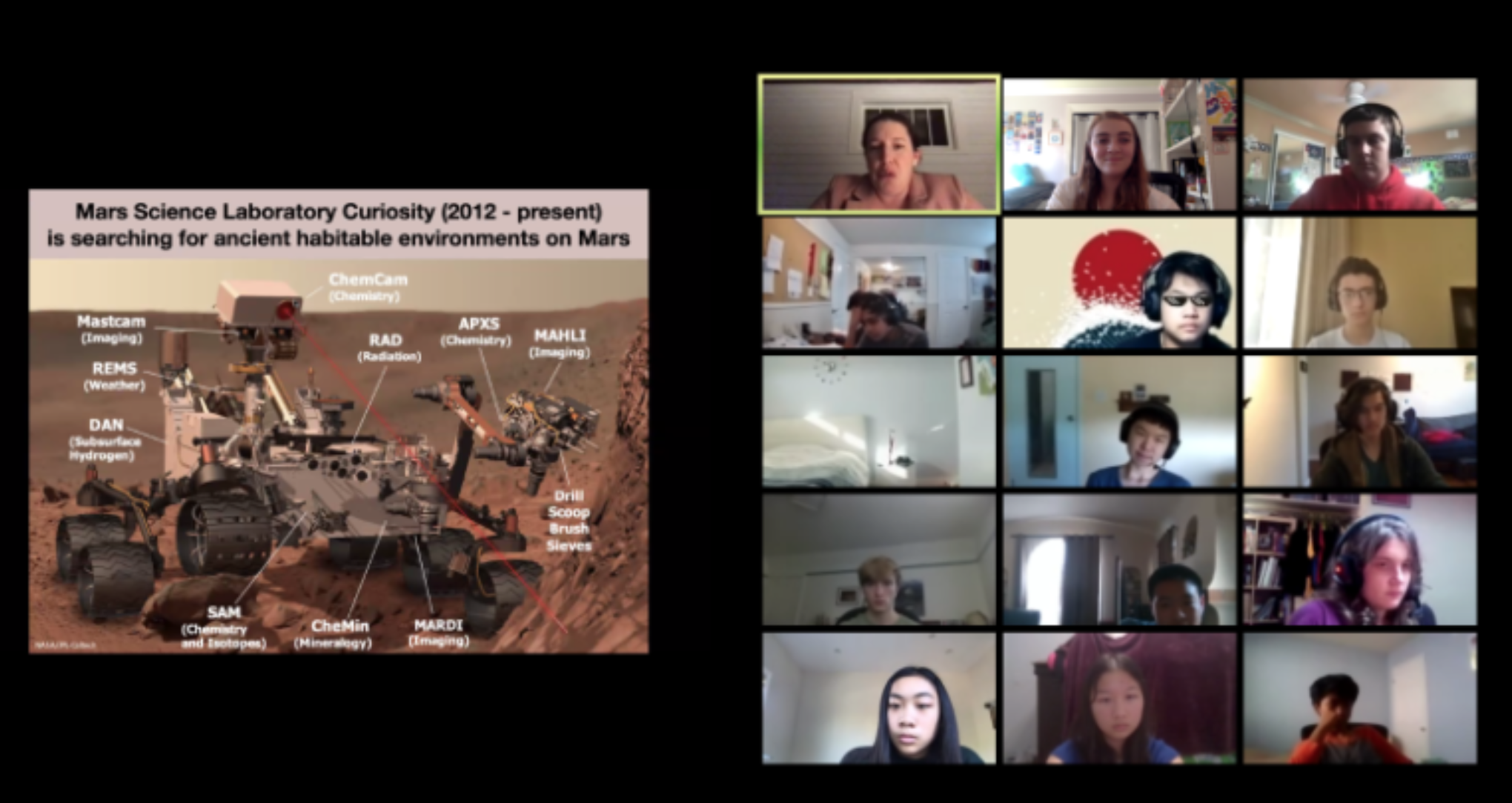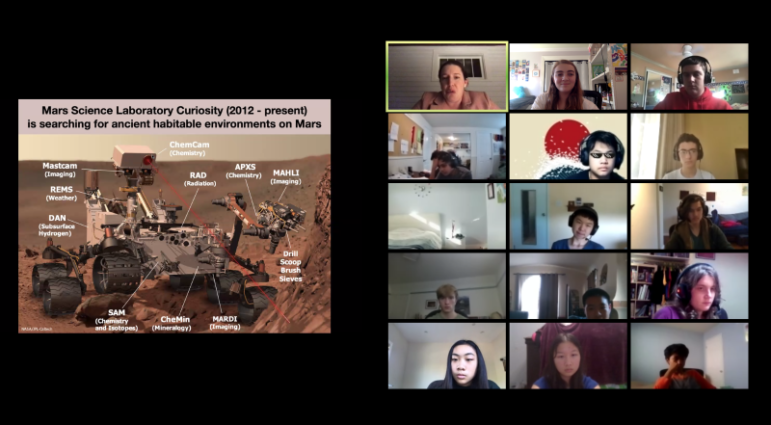
Many organizations at Aragon had to adapt to distance learning protocols, and Aragon Robotics is not exempt. Robotics has altered their yearly training program so all activities take place virtually.
Every year, team leads teach newcomers how to design, construct and operate robots. After creating their bot, team members use it to compete at regional tournaments.
“I think one of our biggest challenges was figuring out how to make virtual training a valuable experience, especially since it’s so different from our typical format,” said senior Robotics Director Shelby Cherkas.
The team spent all summer creating the plan for the 2020-21 school year and found that two components of robotics — computer-aided design and programming — could be taught online. These became the main focus for the technical team, which designs and builds the robots.
“I’m really hopeful that the fundamental skills of design will help with the team’s ability to pick up and do great things when we do get the chance to go back,” Cherkas said.
Robotics’ marketing team found ways to adapt to socially distanced requirements as well. The team was able to secure many sponsorships and grants this year.

“My approach to teaching newbies was to make presentations in the beginning of the year to show them what the marketing team has worked on in the past,” said senior Marketing Captain Taylor Rokala. “For marketing, it is pretty easy to get the hang of working on merch and writing newsletters, so once I introduced the new members to what we typically work on, it was easy for them to get used to working on marketing.”
While online training has been relatively smooth for the beginner technical and marketing teams, the FIRST Tech Challenge team encountered more difficulties.
“Unfortunately, because of the situation, we weren’t able to meet in person, nor were we able to go to the shop at Aragon,” said senior FTC team captain Aaren Wong. “We actually lost a lot of our manufacturing capability.”
Wong let trainees explore more options online to make up for the absence of a physical workshop by taking spare parts before school closed and rotating them between team members.
“I really want people who haven’t started robotics and really gotten to know a lot about robotics to really feel what building is like,” Wong said. “I’ve been able to give the freshmen building materials and actually have them be able to build even if they’re not in person.”
Tournaments, a key element of the robotics season, will take place virtually. However, FIRST organizers heavily modified competitions in order to make them pandemic-friendly. Aragon’s FTC team is currently building their robot to compete in this year’s challenge, “Ultimate Goal.”
“Their competition is going to run with video, like remote matches, where they’ll videotape their robot and submit two minute rounds for points to actually compete in the tournaments,” Cherkas said.
After the challenges are over, the teams present their robots over Zoom, explaining their process for planning out and building the robot. As for the FIRST Robotics Competition team, tournaments are more involved. There are three different challenges, but the details of each have not yet been finalized. The robotics team will be split into smaller teams of veteran members and trainees starting in January.
“One of our biggest challenges was figuring out how to make virtual training a valuable experience”
Even though Robotics was able to transfer fairly well into an online-only format, the team needed to eliminate many activities.
“I always look forward to participating in our outreach events, because we have a workshop we do with young kids that is really fun,” Rokala said. “However with everything being virtual, our outreach is going to look a lot different this year.”
The marketing team is currently working to design workshop events that are completely virtual. Wong misses the environment of the kickoff events that mark the beginning of each competition season as well.
“[They] allow us to get introduced into the year’s game as well as what really FIRST is,” Wong said. “[It] allows them to see what the organization is and has a very communal vibe.”
The 2020-21 season kickoff will take place this coming January. Overall, the virtual robotics season does not have the same team energy as in-person seasons, and the leads feel that newcomers are missing out on an important aspect of robotics.
“It’s definitely offered unique opportunities for approaching different goals,” Cherkas said. “For example, our finance team has been doing extremely well. This is actually the first year that we’ve had a real finance team since I’ve been here. … I’m really looking forward to seeing our finance team and marketing team continue to accomplish big things.”
The team hopes to attract more members with their virtual outreach programs, but most of all, they hope that COVID-19 protocol allows for in-person team time in the future.
